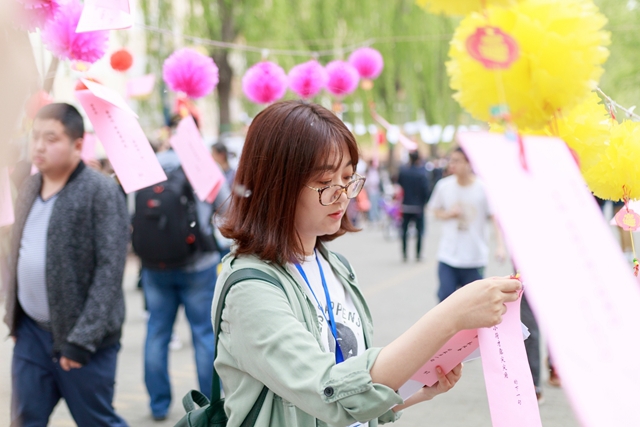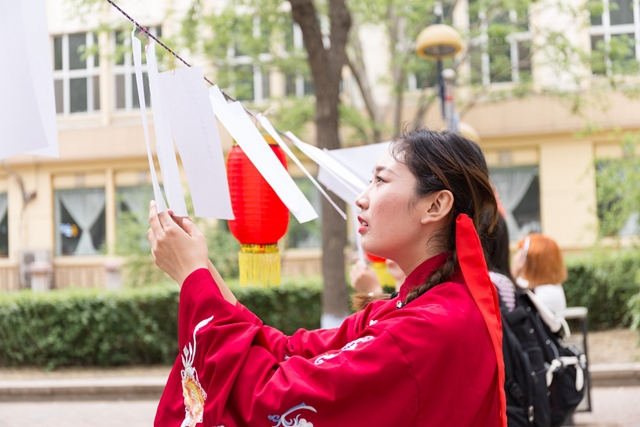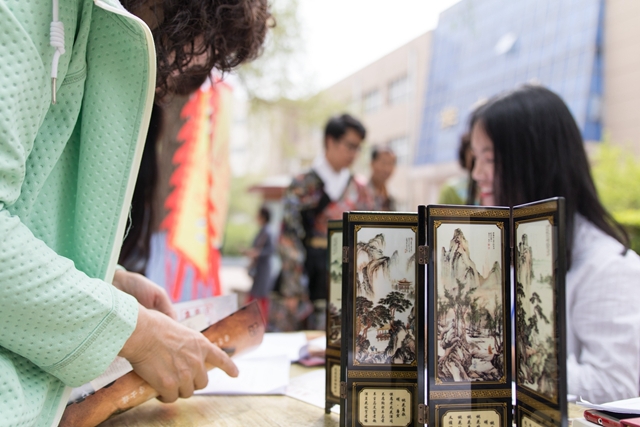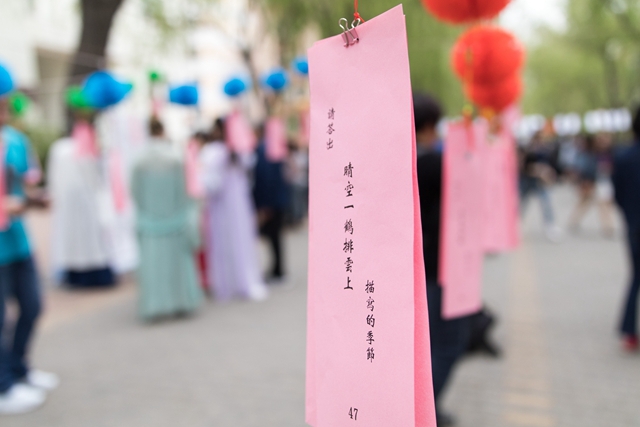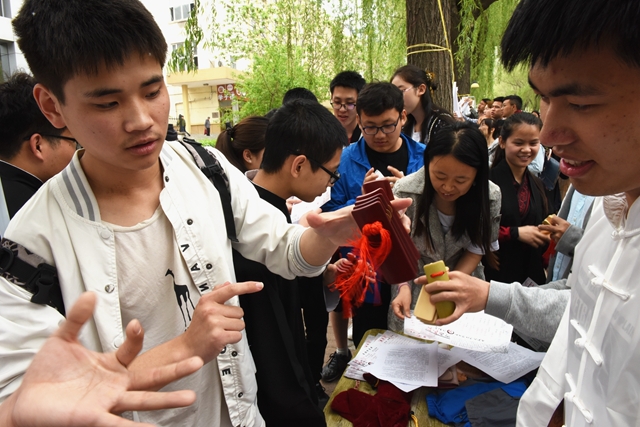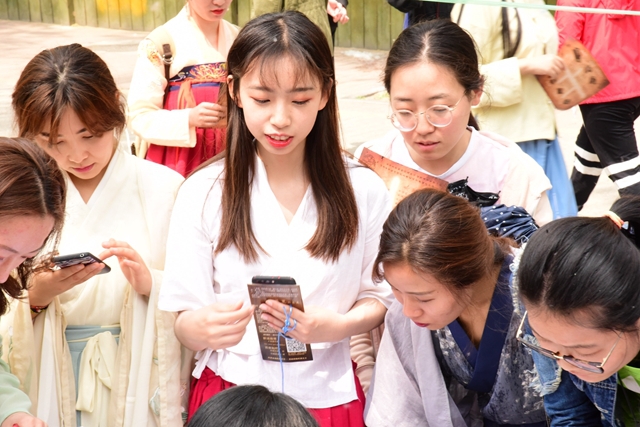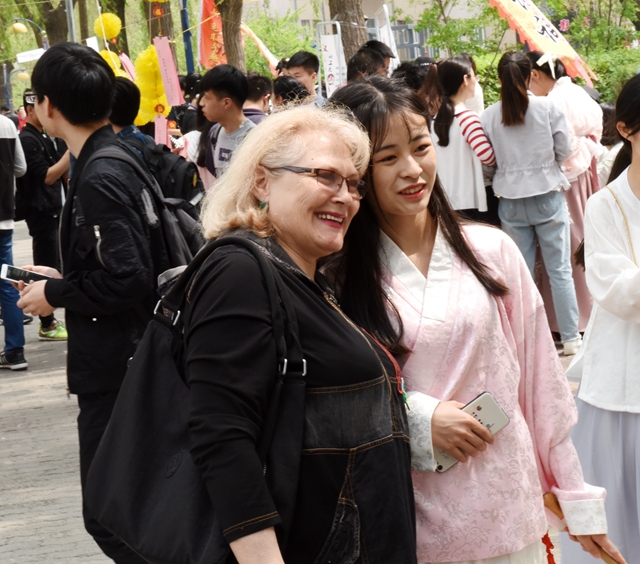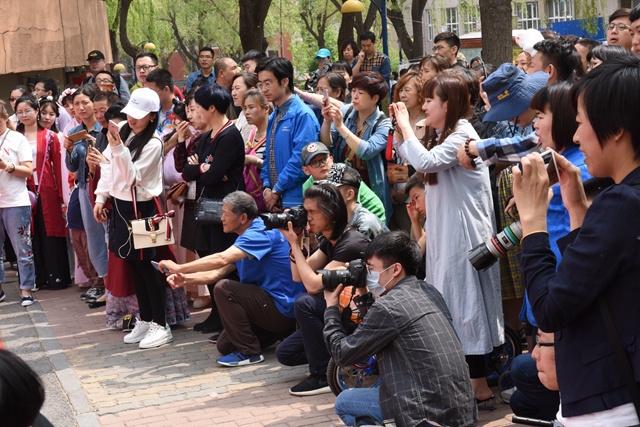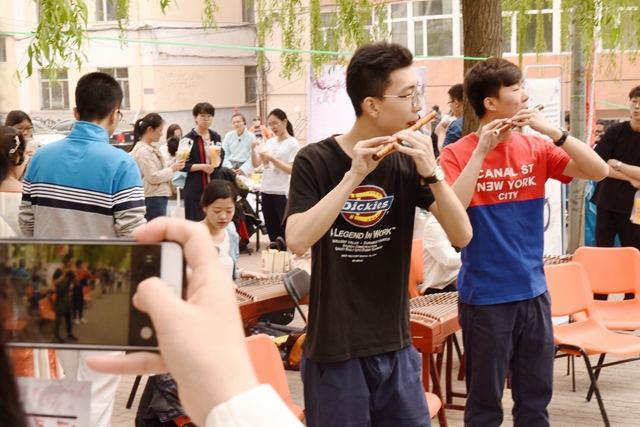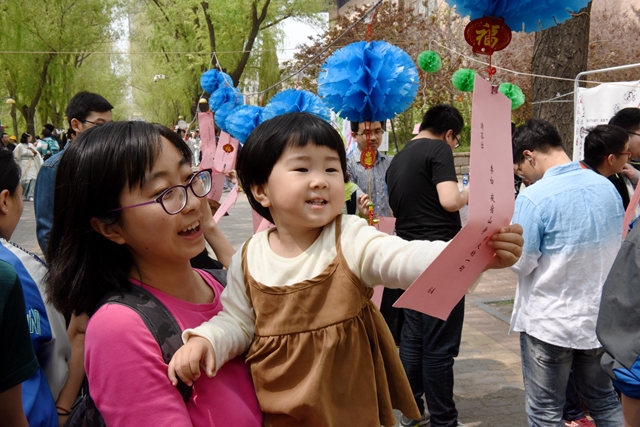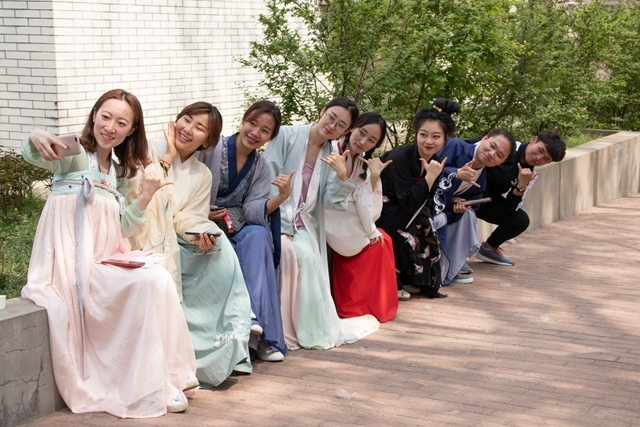Written by: Liu Zhongkui
Edited by: D. Parker
Translated by: Wu Han
Date: May 17th, 2018
With the lilacs blossoming and the leaves dancing, the music of Qin and Xiao rang out at the opening of the second Chinese Traditional Culture Festival. Subtle poems and magnificent literature were presented. Exquisite costumes were modeled demonstrating China’s “antique sensibility. The theme for the festival was “Han Feng Ya Yun” (Chinese styles and refined taste) and was held on the walking street of HIT’s first campus on the morning of May 13th, 2018. It attracted thousands of teachers and students stimulating their appreciation for the extensive, profound and magnificent traditional Chinese culture. The entire festival was witnessed by enthusiastic crowds.
During the event, many students displayed the different styles and colors of Han Chinese Clothing presenting the “clothing etiquette” of our Chinese nation. Students were allowed to try the costumes on for a firsthand experience of the elegance and modesty of the Han Chinese Clothing. A group demonstrated the tea ceremony and the tea arts from different historical periods. Teachers and students could participate by drinking Chinese tea, involving themselves in its wonderful scent. Another group exhibited Chinese traditional flower arrangement arts. Several female students volunteered to arrange flowers on their own, helping them to acquire an appreciation for the beauty of flower arranging. Bursts of sensational and clear music came in the sound of Ding-Dong. Students from the folk music group played the Gu zheng, a 21-or 25-stringed plucked instrument. Enchanting music rose from their fingers projecting the sound of the mountains and waters flowing from place to place or pearls dropping on the jade plate. It was both welcoming and relaxing. Everywhere one looked you see guests taking photos! The history and literature groups were surrounded by eager listeners with many questions. A group reading traditional poetry led guests in discovering the history and stories in the poems and the literary allusions between the lines.
Another group presented the incense ceremony. They introduced the furnace bottle, with its censer, pomander and bottle and how to properly use it. Their expertise amazed all who stopped by. In addition there were activities such as playing the game Touhu, making Chinese knots, guessing lantern riddles, singing Beijing opera, and drawing "double-nine" diagrams. (Ancient Chinese people divided the 81 days after the winter solstice into 9 parts). Teachers and students enjoyed these events. Their Wechat moments were filled with pictures from the festival, which gained the likes and comments from students and friends.
The festival was organized based on the four seasons: spring sprouting, summer growing, autumn harvesting and winter storing. It combines traditional culture with the seasons of the year perfectly. Guests experienced the joy of the combination of the natural humanistic atmospheres.
